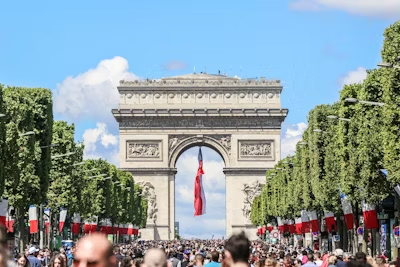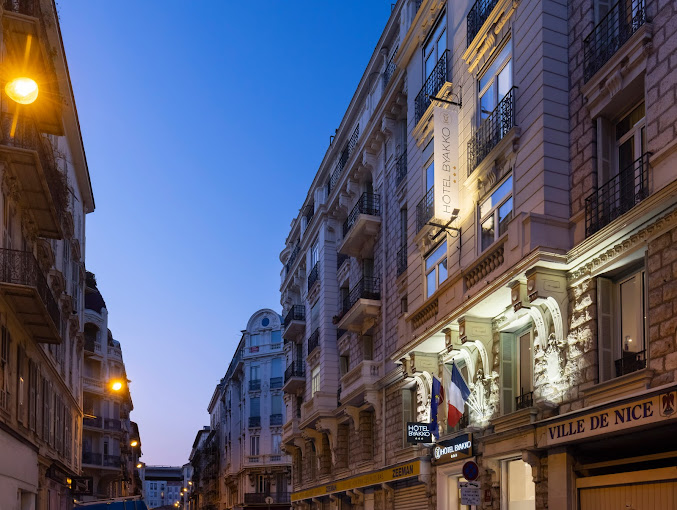
What is Bastille Day?
Bastille Day, or La Fête Nationale, is celebrated every year on July 14 as France's national day. Symbolically, the date marks the Storming of the Bastille in 1789, a turning point of the French Revolution, which ultimately ended with the demise of the monarchy and the birth of the French Republic. Universally celebrated as a symbol of democracy, freedom, and fraternity, Bastille Day has an extremely historical and cultural meaning.
Historical Background to Bastille Day
The Fall of the Bastille: A Watershed
The Bastille was an old medieval fortress and prison in Paris, a symbol of royal power and oppression. On 14 July 1789, indignation revolutionaries stormed the Bastille in outrage at the monarchy's tyranny. Though there were only seven prisoners in jail at the time, the assault was of gigantic political and symbolic significance, the start of the French Revolution.
Why the Bastille Was Attacked
The Bastille was a prison in Paris alone; elsewhere it was a symbol of absolute monarchy. The Parisians saw it as a proof of arbitrary rule and unjust imprisonment. Its fall conveyed a simple message throughout the country: the people needed liberty, equality, and fraternity.
From Revolution to Celebration
A year after, on July 14, 1790, France celebrated the Fête de la Fédération to mark national unity. From then on, July 14th was Bastille Day, a celebration of national freedom and republican principles.
How Bastille Day is Celebrated in France
The Symbolic Military Parade on the Champs-Élysées
Paris Bastille Day parade is one of the oldest and largest military parades in the world. Every year on the Champs-Élysées, it boasts:
French military men and foreign troops
Speech of the President of the Republic
French Air Force flybys
Grand parades and spectacles
Millions of viewers tune in to watch this event on television and listen to international VIPs attend it.
Fireworks Display at the Eiffel Tower
At night on July 14th, a beautiful display of fireworks illuminates the sky above the Eiffel Tower, choreographed to classical and modern music. The display is viewed throughout Paris and frequently completed by a concert at the Champ de Mars, drawing thousands.
Parties and "Bals des Pompiers"
Throughout France, cities and villages hold:
Street parties
Concerts
Public balls, particularly the traditional "Bals des Pompiers" (Firemen's Balls) held in fire stations.
The celebrations are a holiday blend of tradition and festivity, so Bastille Day is festive and also somber.
Bastille Day Around the World
International Celebrations
Numerous nations with French inhabitants or historical connections to France also celebrate Bastille Day, some of them being:
United States (notably New York, New Orleans, and San Francisco)
Canada (notably Quebec)
Belgium, Switzerland, French Polynesia, and Réunion Island
French Embassies and Cultural Events
French embassies around the globe organize receptions, cultural displays, and French cuisine evenings. They facilitate Franco-cultural exchange and international relations.
Traditions and Symbols of Bastille Day
Tricolor Flag and the Marseillaise
The French tricolor flag — blue, white, and red — is flown. The colors signify:
Blue: Liberty
White: Equality
Red: Fraternity
The national anthem, "La Marseillaise," is sung at all formal ceremonies. It is still a strong cry for liberty.
Republican Values
Bastille Day represents France's fundamental values:
Liberty
Equality
Fraternity
These values resound throughout the world, echoing pleas for justice and human rights.
Food and Drinks on Bastille Day
Classic French Cuisine
It is also a day of gluttony when it comes to food. Families and friends come together to savor:
Baguettes and cheese
Roast beef or duck
Ratatouille and quiche
Tarts, éclairs, and macarons
Wines and Champagnes
Wines and Champagnes never fail to feature in every celebration, and some of these are:
Bordeaux, Champagne, and Burgundy
Light rosés for hot summer parties
Going on a trip to France for Bastille Day
What to Expect
Tourists traveling to France during Bastille Day can expect:
Busy cities, particularly in Paris
Security checks and roadblocks
Cheerful public transport schedules
A truly unforgettable cultural event
Top Destinations to Enjoy Bastille Day
Paris: Military parade and fireworks over the Eiffel Tower
Lyon: Riverbank concerts and music festivals
Nice: Fireworks at the beaches and concerts
Avignon: Historic reenactments and cultural performances
Cultural Impact and Global Significance
A Symbol of Democratic Ideals
Internationally, Bastille Day is a symbol of:
Liberty from tyranny
Bravery of the people
Democratic government
It has galvanized revolutionary movements around the globe, ranging from Southeast Asia to Latin America.
France's Legacy of Revolution
The French Revolution shook the political landscape of the world. Bastille Day is a reminder of that, reminding France of its role in contemporary democratic history.
Interesting Facts About Bastille Day
The Bastille fortress was leveled to the ground after being captured; their stones were being sold as memorabilia of liberty.
The Statue of Liberty, a present by France to America, is usually linked to the common revolutionary values between the two countries.
The French Foreign Legion is crowd favorite at the parade because of their intentional, choreographed step
Why Bastille Day Still Matters Today
In today's more fractured world, Bastille Day remains an inspiration to unity, to struggle against oppression, and to enshrining liberty. It outlasts time and space, reminding everyone that liberty must be cherished.












